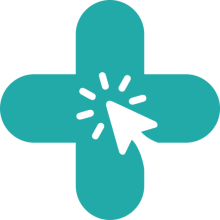Published - Sat, 01 Oct 2022

Organic Brain Disorders and Psychosis
1. Organic brain disorders: Characterized by impaired orientation and cognitive brain function
a) Dementia: Typically older patients with progressive memory loss plus a decline in executive function, aphasia (speech), agnosia (use of objects), or apraxia (organization). They may be agitated due to the inability to understand their surroundings and often have an overlying component of psychosis or delirium
b) Delirium: Characterized by the rapid onset (hours to days) of impaired orientation and cognition. These patients may have a readily treatable and reversible condition (e.g., hypoglycemia).
2. Psychosis: Typically characterized by abnormal thought patterns, often with intact cognition. These patients often can perform calculations, memorize items, or converse, but they have bizarre ideas and thoughts. For a diagnosis of psychosis, one should have hallucinations, delusions, catatonia, thought disorder, or social impairments. Psychosis is frequently a complication of one of the mental illnesses described below, but it can also develop from drug addiction or intoxication (e.g., methamphetamine abuse, alcohol abuse or withdrawal, and prescription drugs). Psychosis typically presents for the first time in a patient’s teens to mid-30s; patients presenting with psychosis at older ages should be highly suspicious of organic causes.
a) Schizophrenia: Characterized by delusions and hallucinations and is the most common cause of psychosis. These patients may present to the emergency department (ED) in a flattened mood and withdrawn state (catatonia), or they may be violent, paranoid, and suspicious of healthcare workers. Antipsychotic medications are the mainstay of treatment, both emergently and on a chronic basis.
b) Mania: Associated with bipolar disorder, wherein patients have cyclical mood swings that vary from depression to mania. Mania is characterized by elevated mood and energy. Acutely manic patients will exhibit pressured speech, agitation, grandiose delusions, and insomnia. Sedating neuroleptics are often needed in the emergent setting to control the patient.
c) Depression: Patients may present with psychotic features, although this is rare. Delusions are the most common psychotic feature seen in depressed patients; these patients are not usually violent or agitated.
EVALUATION
EDs should have a defined plan for dealing with violent or abusive patients. If the patient is threatening, evaluation and treatment should always take place with several people in the room.
a) History and physical examination: An attempt should be made to obtain as much information about the patient’s condition as possible from relatives, friends, paramedics, and other health care workers. If possible, take a history or perform a physical examination before restraining or sedating the patient.
b) Laboratory studies and other studies (e.g., radiography) should be guided by the history and physical examination findings. Patients with known psychiatric disorders or dementia may require minimal workup. Standard tests for these patients often include an ethanol level, drug screen, and basic blood work.
THERAPY
a) Restraint and sedation: The priority in dealing with patients with organic brain disorders or psychosis is ensuring the safety of both health care workers and the patient. There are various ways to do this.
i) Environmental seclusion: Placement of the patient in a quiet, darkened room will often prevent escalation of agitation in mildly agitated patients.
ii) Physical restraint: Violent and severely agitated patients may require physical restraints. At least five or six ED personnel must be present to restrain each of the patient’s limbs and his or her trunk in unison. Physical restraints are only justified if the patient is an imminent threat to himself or herself or others.
iii) Chemical restraint: Sedation may be required if the patient remains agitated. Quick and safe sedatives to use include droperidol, ziprasidone, haloperidol, or lorazepam.
—Patients on phencyclidine or methamphetamines may require substantial doses (e.g., 10 mg droperidol, 6 to 10 mg haloperidol, 10 to 15 mg lorazepam) before control is achieved.
—Because some antipsychotics may lower the seizure threshold, the use of benzodiazepines may be more appropriate in certain circumstances (e.g., cocaine intoxication).
—Patients with acute uncontrolled psychosis often require the rapid administration of antipsychotics to gain control.
b) Glucose, oxygen, thiamine, naloxone, and flumazenil should be considered for the altered patient. These agents may rapidly correct the causes of coma, delirium, or psychosis. Note: Flumazenil should only be considered for the benzodiazepine-naive patient who has overdosed.
DISPOSITION
— Acutely psychotic patients usually need inpatient psychiatric care. An involuntary psychiatric hold may need to be invoked.
— Patients with delirium should be admitted to the hospital unless a readily reversible or minor cause is found in the ED.
— Many patients with drug or alcohol intoxication can be observed in the ED until they are appropriate for discharge.
— Suicidal or homicidal thoughts should be ruled out before discharge.
Created by
Rigomo Team
Rigomo is a leading online education platform that offers a wide range of courses to help individuals enhance their skills and achieve their career goals. With our user-friendly interface and expert instructors, we strive to provide high-quality education to everyone, anytime and anywhere. Join us today and take the first step towards a brighter future.
Rigomo is an e-learning platform that was founded in 2019 by a team of dedicated professionals with a passion for revolutionizing the way people learn. The platform offers a range of online courses that cover various industries, including business, technology, healthcare, and more.
Rigomo's courses are designed to be interactive and engaging, with a focus on practical skills that learners can apply in their careers. The platform uses a combination of video lectures, quizzes, and hands-on projects to help learners master the subject matter.
Rigomo is committed to providing affordable and accessible education to people around the world. The platform offers a range of pricing options, including monthly and annual subscriptions, as well as pay-as-you-go options for individual courses.
Since its launch, Rigomo has received numerous accolades for its innovative approach to e-learning. The platform has helped thousands of learners across the globe acquire new skills and advance their careers.
As Rigomo continues to grow, the team remains committed to providing high-quality education that is accessible to all. The platform is constantly updating its courses and features to ensure that learners have access to the latest tools and technologies.
Comments (0)
Search
Popular categories
Health and Wellness
231Skill Development
7Technology
5Community Impact
2Success story
2Strategy
1Latest blogs

DeepSchool: The Story of an Idea That Refused to Sit Still
Tue, 02 Dec 2025

Transforming Emergency Care: The Story Behind Rigomo's Revolutionary PPMMP Course
Sun, 12 May 2024

Empowering Rural Healthcare: How Pogiko's AI is Bridging the Gap in Medical Services
Thu, 25 Apr 2024

Write a public review